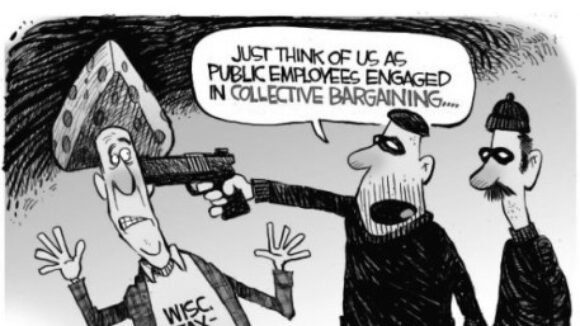Forced Unionism on the War Path
The National Labor Relations Board has become nothing more than puppets for the union bosses who were unable to achieve their goals legislatively and have now set their sights on forcing workers into unions administratively. WFI's Fred Wszolek looks at the three-headed monster of schemes the board is proposing to foist coercive unionism on workers across the employment spectrum. The NLRB and DoL are working to enact three sweeping rule changes that would restrict the freedoms of employers, while significantly shifting workplace power into the hands of Big Labor. Workers who would be directly and negatively affected by these changes are largely unaware that Washington, D.C. has declared war against them and jobs by advancing bureaucratic regulations that will increase unemployment and restrict hard-won liberties. The NLRB is currently pushing two changes: quickie union elections and the formation of micro units. Both of these change decades-old board law and procedure that have not hurt unions, instead allowed them to win the majority of organizing elections and strengthened the collective bargaining unit that has been formed. Successful union elections are still taking place with a 67.6 percent success rate. It is reported that unions brought in $8.8 billion in dues in 2010. So why the need for these rules changes? A closer examination shows that, quite simply, the Obama Administration is bailing out Big Labor with little to no regard for implications on workers due to the fact union membership has declined. The proposed quickie election rule shortens the time for union elections from a median time of 38 days to as little as 10, depriving employees of the ability to make an informed choice on perhaps the most important issue they will face in the workplace: whether to unionize. The aim? To catch businesses off guard and leave them scrambling so that a vote happens before employees can study the facts. During an already difficult economic time, the proposal for quickie elections would place additional costs and burdens on small business owners, who lack the resources and legal expertise to navigate and fully comprehend the NLRB’s election processes.
